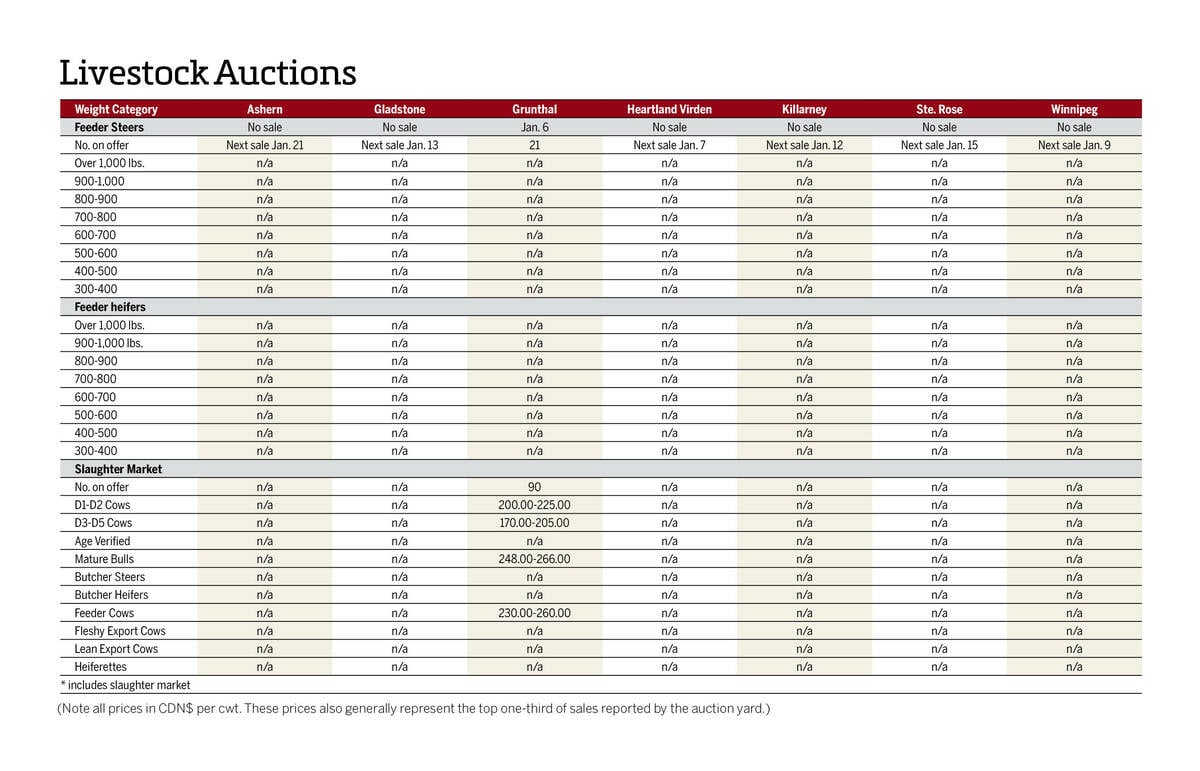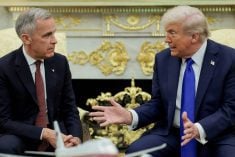With a tremendous amount of anger and frustration pouring onto the streets of Santiago, Chile, the country’s president cancelled the upcoming Asia-Pacific Economic Co-operation Summit.
The gathering of government leaders from around the Pacific Rim was to take place in the Chilean capital on Nov. 16 and 17. However, floods of demonstrators protesting against harsh economic conditions and government corruption have posed a threat to the continued tenure of President Sebastian Pinera.
The international embarrassment of kiboshing the APEC Summit, as well as the Conference of the Parties 25 (COP25) Summit in December, likely proved to be more palatable than the protests disrupting either or both global conferences.
Read Also

Manitoba cattle prices Jan. 6
Grunthal was the first Manitoba livestock auction mart to kick off 2026 cattle sales in early January.
So now in Washington, D.C. and Beijing, government officials are looking for an alternative site for presidents Donald Trump and Xi Jinping to pen their names to their partial trade agreement.
Trump and Xi were to have signed the pact at next month’s APEC Summit. Despite its cancellation, the trade deal is said to be pressing ahead, with Macao, China reportedly one possible site.
The opportunity to exploit the APEC Summit cancellation to alter the partial trade deal was never fully taken by the U.S. or China. Although, China did voice its newly found displeasure of having to purchase US$50 billion in U.S. agricultural goods. Instead, China will likely cut or eliminate its tariffs on such products, and allow its buyers to adhere to market conditions.
That said, China also opined that a comprehensive trade agreement with the U.S. may be impossible to achieve. Whether this is only pre-negotiation positioning to a serious threat remains to be seen.
However, the continuing U.S./China trade war remains undeniably a grave threat to the global economy. The spat has been responsible for an economic slowdown and that, if the trade war continues to be unresolved, could push the rest of the world into a recession.
















